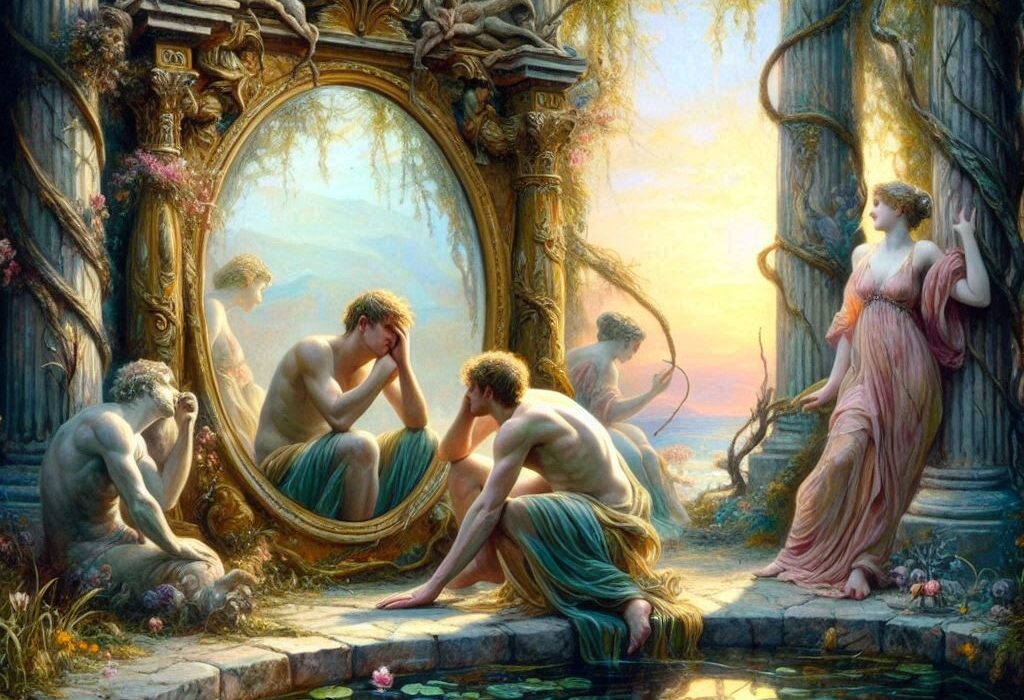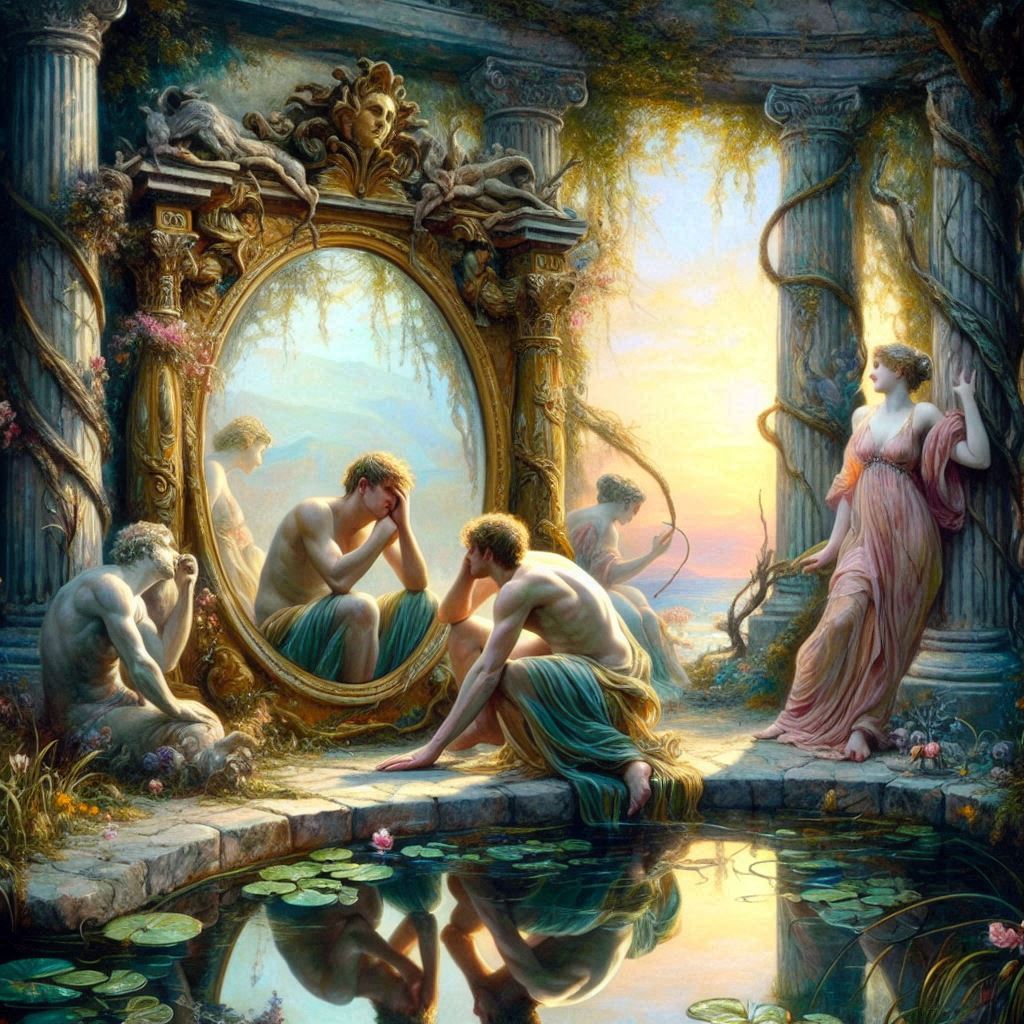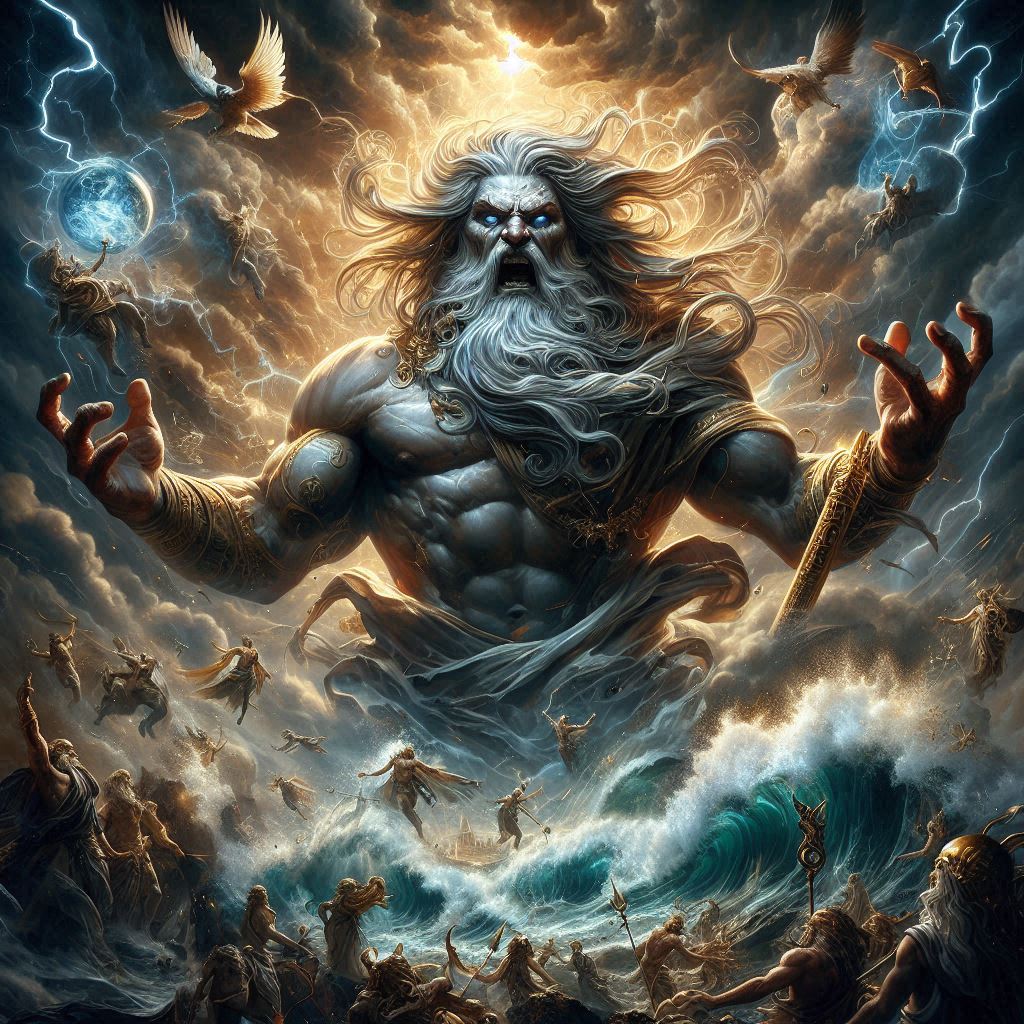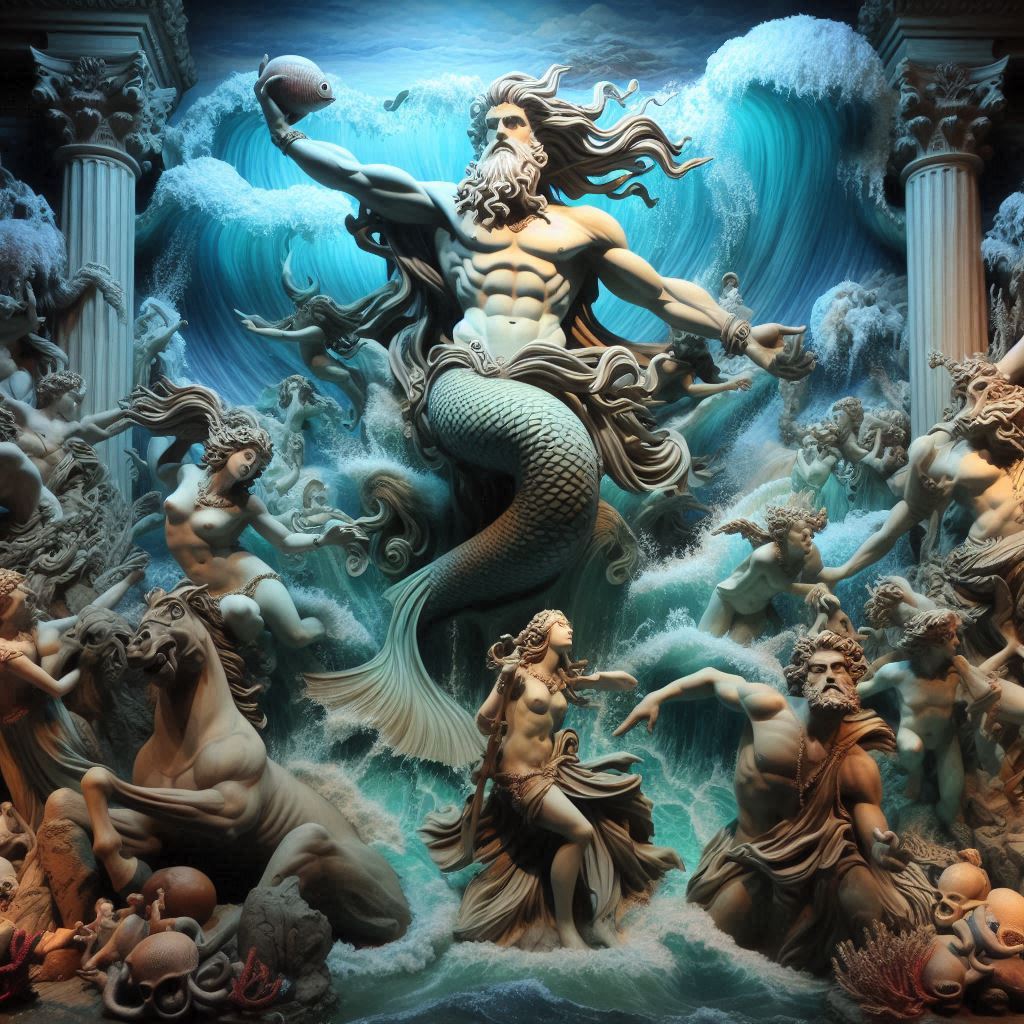The myth of Echo and Narcissus is a poignant tale of unrequited love, vanity, and tragic consequences in Greek mythology. This timeless story explores the themes of self-obsession, the power of reflection, and the destructive nature of unattainable desires. Through the intertwined fates of Echo, a nymph cursed with an inability to speak her own words, and Narcissus, a youth consumed by his own beauty, the myth delves into the complexities of love, identity, and the consequences of unchecked narcissism.
The story begins with Echo, a beautiful nymph known for her melodious voice and captivating presence. However, Echo’s loquacious nature and tendency to gossip and chatter earn her the ire of the goddess Hera, who punishes her by taking away her ability to speak her own words. From that moment on, Echo is condemned to repeat only the last words spoken to her, becoming a mere echo of others’ voices.
Despite her affliction, Echo retains her enchanting beauty and falls deeply in love with Narcissus, a handsome and vain youth renowned for his exceptional looks. Narcissus, however, is indifferent to Echo’s affections, dismissing her advances and spurning her love. His narcissistic tendencies and obsession with his own image lead him to reject all potential suitors, including Echo, whom he dismisses with disdain.
Narcissus’s downfall begins when he encounters his reflection in a clear pool of water and becomes entranced by his own beauty. Unable to tear himself away from his reflection, Narcissus is consumed by self-admiration and falls deeply in love with the image he sees. Ignoring the pleas of Echo and others who try to reach out to him, Narcissus remains fixated on his reflection, unaware of the tragic consequences that await him.
The myth of Echo and Narcissus serves as a cautionary tale about the dangers of vanity, self-absorption, and the inability to love beyond oneself. Narcissus’s obsession with his own image and his rejection of Echo’s genuine love represent the destructive nature of narcissism and the inability to form meaningful connections with others. Echo’s unrequited love and inability to express her feelings symbolize the pain and frustration of loving someone who cannot reciprocate or acknowledge one’s emotions.
The theme of reflection, both literal and metaphorical, plays a central role in the myth of Echo and Narcissus. Narcissus’s fixation on his reflection in the pool symbolizes his self-absorption and inability to see beyond his own image. His narcissistic tendencies prevent him from forming genuine connections with others, leading to his isolation and eventual demise.
Echo, on the other hand, embodies the concept of reflection in a different way. Cursed to echo the words of others, she becomes a reflection of those around her, unable to express her own thoughts, feelings, and desires. Her tragic fate highlights the consequences of losing one’s voice and identity in the pursuit of love and validation from others.
The myth also explores themes of transformation and metamorphosis, common motifs in Greek mythology. As Narcissus remains fixated on his reflection, he slowly wastes away, consumed by his unattainable desire. In some versions of the myth, Narcissus eventually transforms into the narcissus flower, symbolizing his eternal fixation on his own image and the fleeting nature of beauty and desire.
Echo’s fate is similarly tragic, as she fades away into nothingness, leaving only her voice behind. In some versions of the myth, Echo’s voice continues to echo in the mountains and valleys, a haunting reminder of her unrequited love and silenced existence. Her transformation into a disembodied voice reflects the loss of self and identity that can result from unfulfilled desires and unreciprocated love.
The myth of Echo and Narcissus has inspired countless works of art, literature, and psychology, resonating with audiences through its exploration of universal themes such as love, identity, vanity, and the human condition. It serves as a cautionary tale about the dangers of self-absorption, the importance of genuine connections with others, and the consequences of unchecked narcissism.










